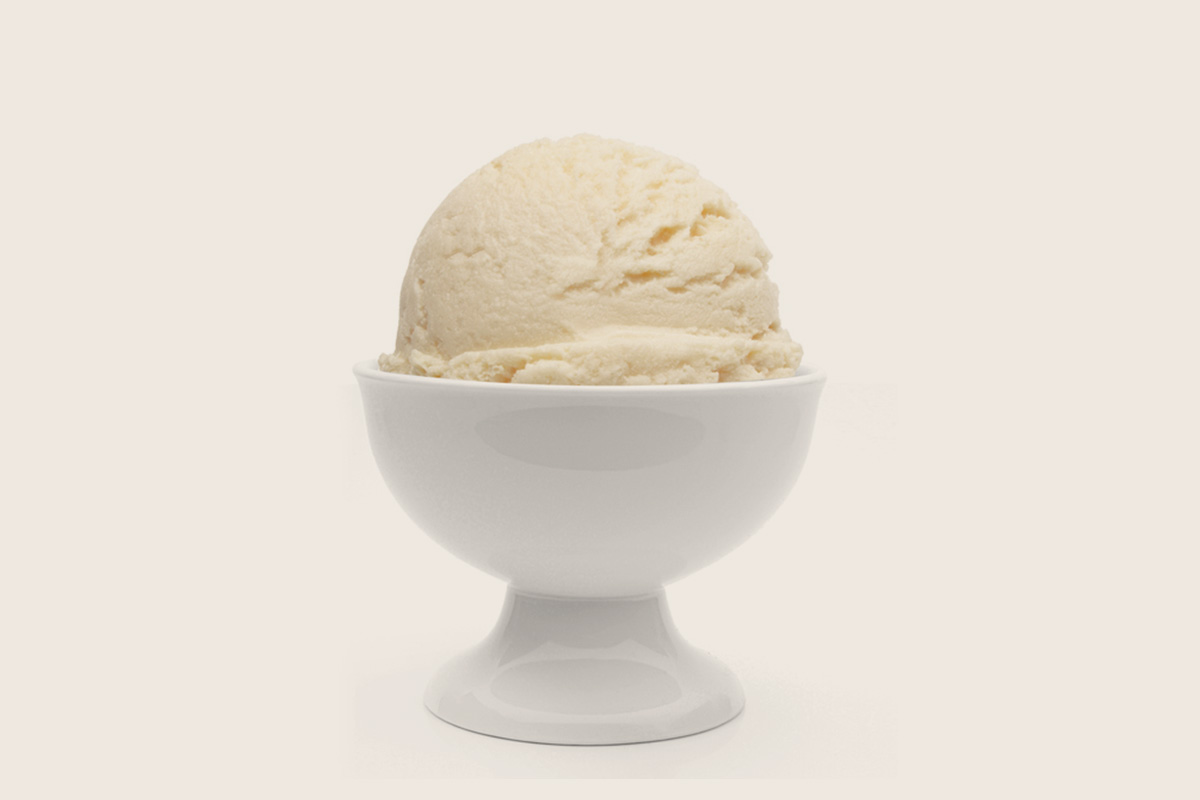Introduction

The debate about whether ice cream makes you fat has been ongoing for years. Many people believe that indulging in this delicious treat will inevitably lead to weight gain. However, there are several misconceptions surrounding this topic, and it is essential to separate fact from fiction. This article aims to debunk the myths about ice cream and weight gain by examining the factors that contribute to weight gain, the nutritional content of ice cream, and the impact of portion sizes and frequency of consumption. By understanding these factors, we can better incorporate ice cream into a healthy, balanced diet.
Overview Of The Topic Does Ice Cream Make You Fat?
The topic of whether ice cream makes you fat has been a subject of debate for years. Many people believe that consuming ice cream will inevitably lead to weight gain. However, there are misconceptions surrounding this belief. This article aims to provide an overview of the topic by examining the factors that contribute to weight gain, the nutritional content of ice cream, and the impact of portion sizes and frequency of consumption. By debunking these myths and understanding the facts, readers can make informed choices about including ice cream in a balanced diet.
Common Misconceptions About Ice Cream And Weight Gain
One common misconception about ice cream and weight gain is that all types of ice cream are inherently fattening. While it’s true that some ice creams can be high in calories and saturated fat, there are also options available that are lower in calories and fat, such as light or low-fat varieties. Another misconception is that eating ice cream will automatically lead to weight gain. In reality, weight gain is the result of consuming more calories than you burn, regardless of the specific food. It’s important to consider portion sizes and incorporate ice cream into a balanced diet.
Understanding Weight Gain

Understanding Weight Gain: Factors Affecting Weight Gain
Weight gain is influenced by a variety of factors, including genetics, metabolism, lifestyle, and dietary choices. Consuming excess calories without burning them off through physical activity can lead to weight gain over time. Poor eating habits, such as a high intake of sugary and fatty foods, can contribute to weight gain as well. It’s important to maintain a balanced diet and engage in regular exercise to achieve a healthy weight. Additionally, individual differences in metabolism and body composition can also play a role in weight gain.
Factors Affecting Weight Gain
There are several factors that can contribute to weight gain. Genetics plays a role, as some individuals may have a predisposition to gain weight more easily than others. Metabolism also plays a part, as a slower metabolism can make it easier to gain weight. Lifestyle choices, such as a sedentary lifestyle or lack of physical activity, can lead to weight gain. Additionally, dietary choices, including consuming high-calorie and high-fat foods, can contribute to weight gain. It is important to be mindful of these factors and make healthy choices to maintain a healthy weight.
Calorie Intake And Expenditure
Calorie intake and expenditure play a crucial role in weight gain or loss. When we consume more calories than our body needs for energy, the excess is stored as fat, leading to weight gain. On the other hand, if we consume fewer calories than we burn, our body starts using stored fat for energy, resulting in weight loss. Therefore, to maintain a healthy weight, it is important to balance calorie intake with expenditure through proper nutrition and regular physical activity. Being mindful of portion sizes and making healthier food choices can help manage calorie intake, while engaging in exercise and staying physically active can boost calorie expenditure.
Nutritional Content Of Ice Cream

Ice cream can vary in its nutritional content depending on factors such as brand, flavor, and type. A 1/2-cup serving of vanilla ice cream can provide approximately 7 grams of total fat for regular ice cream and up to 13 grams for premium varieties. Low-fat options may have around 2-3 grams of fat. While ice cream can be a tasty treat, it is important to note that it is calorie-dense and low in essential nutrients compared to healthier alternatives like fruits and vegetables. Moderation is key to enjoying ice cream as part of a balanced diet.
Calories And Macronutrients In Ice Cream
Ice cream can vary in its calorie and macronutrient content depending on the flavor and type. A 1/2-cup serving of vanilla ice cream can provide approximately 7 grams of total fat for regular ice cream and up to 13 grams for premium varieties. Low-fat options may have around 2-3 grams of fat. Additionally, ice cream can contain carbohydrates in the form of sugars, ranging from 14-20 grams per serving. It is important to note that while ice cream can be a tasty treat, it is also calorie-dense and should be consumed in moderation as part of a balanced diet.[13]
Different Types Of Ice Cream And Their Nutritional Profiles
Ice cream comes in various flavors and types, each with its own nutritional profile. Premium or full-fat ice cream tends to have a higher calorie and fat content compared to lower-fat options. However, low-fat or light ice cream varieties may contain less fat but can sometimes have higher sugar content to compensate for the reduced fat. Additionally, there are also dairy-free and vegan ice cream options available, typically made from plant-based substitutes such as almond or coconut milk. It’s important to read the nutrition labels to understand the specific nutritional values of different ice cream types.
Impact On Weight Gain

The impact of ice cream on weight gain depends on various factors such as portion sizes and frequency of consumption. Eating large portions of high-calorie ice cream regularly can contribute to weight gain. However, it is important to note that occasional indulgence in moderate portion sizes is unlikely to cause significant weight gain on its own. Balancing ice cream intake with a nutritious diet and incorporating regular physical activity can help mitigate the potential impact on weight gain. Moderation is key in enjoying ice cream as part of a healthy lifestyle.
Role Of Portion Sizes In Weight Gain
The role of portion sizes in weight gain cannot be overlooked when it comes to ice cream consumption. Eating large portions of ice cream can lead to an excess intake of calories, which can contribute to weight gain over time. It is important to be mindful of serving sizes and enjoy ice cream in moderation. Opting for smaller portions or sharing a treat with a friend can help control calorie intake and prevent excessive weight gain. Being conscious of portion sizes is essential for maintaining a healthy balance.
Frequency Of Ice Cream Consumption And Its Effect On Weight
The frequency of ice cream consumption can impact weight gain. Regularly indulging in large portions of ice cream can lead to excessive calorie intake, which can contribute to weight gain over time. On the other hand, enjoying ice cream in moderation and occasionally as a treat is unlikely to cause significant weight gain. It is important to balance ice cream consumption with a healthy and nutritious diet, ensuring that overall calorie intake remains within a reasonable range. Being mindful of how often and how much ice cream is consumed can help maintain a healthy weight.
Incorporating Ice Cream Into A Healthy Diet

Balancing ice cream with other nutritious foods is key to incorporating it into a healthy diet. Here are some tips for enjoying ice cream without gaining weight:
- Portion control: Stick to small servings of ice cream to manage calorie intake.
- Choose healthier options: Opt for low-fat or light ice creams that contain fewer calories and less saturated fat.
- Pair it with fruit: Add fresh fruits like berries or sliced banana to your ice cream to increase the nutritional value.
- Make homemade versions: Experiment with making your own healthier versions of ice cream using ingredients like Greek yogurt or almond milk.
- Plan ahead: Include ice cream as a occasional treat in your overall meal plan, ensuring it fits within your daily calorie goals.
By being mindful of portion sizes and making healthier choices, you can enjoy ice cream as part of a balanced and nutritious diet.
Balancing Ice Cream With Other Nutritious Foods
Balancing ice cream with other nutritious foods is key to incorporating it into a healthy diet. By including a variety of nutrient-dense foods in your meals, you can offset the indulgence of ice cream. Here are some tips:
- Add fresh fruits like berries or sliced banana to your ice cream to increase the nutritional value.
- Pair your ice cream with a serving of protein, such as Greek yogurt or a handful of nuts.
- Include a serving of vegetables or a salad alongside your ice cream treat.
- Opt for whole grain toppings like granola or crushed nuts to add fiber and additional nutrients.
- Plan your meals in a way that allows for the occasional enjoyment of ice cream, while still meeting your overall nutritional needs.
By balancing your intake of ice cream with other nutrient-rich foods, you can still indulge in this treat while maintaining a healthy diet. [25]
Tips For Enjoying Ice Cream Without Gaining Weight
- Choose smaller portion sizes when indulging in ice cream. Opt for a single scoop instead of multiple scoops or larger servings.
- Look for low-calorie or light versions of your favorite ice cream flavors.
- Enjoy your ice cream in a bowl rather than a cone to control portion sizes.
- Be mindful of toppings and opt for healthier options like fresh fruit or crushed nuts instead of sugary sauces or candies.
- Practice moderation and enjoy ice cream as a treat rather than a daily indulgence.
- Balance your overall diet by incorporating plenty of fruits, vegetables, lean proteins, and whole grains in your meals.
Conclusion

In conclusion, the notion that ice cream makes you fat is a common misconception. While ice cream does contain calories and can contribute to weight gain if consumed excessively, it can be enjoyed as part of a balanced diet. Portion control, choosing lighter options, and incorporating it into an overall healthy eating plan are key. By practicing moderation and making mindful choices, you can satisfy your ice cream cravings without compromising your weight loss or maintenance goals. Remember, it’s all about finding a balance that works for you. So, go ahead and enjoy that scoop of ice cream guilt-free!
Summary Debunking The Myth About Ice Cream And Weight Gain
Contrary to popular belief, ice cream alone does not directly cause weight gain. It is the overall balance of calories consumed and expended that determines weight gain or loss. While ice cream does contain calories, it can still be enjoyed as part of a healthy diet when consumed in moderation. By practicing portion control and incorporating it into a balanced eating plan, individuals can indulge in their favorite frozen treat without compromising their weight loss goals. Ultimately, the key is to maintain a balanced and mindful approach to food and to enjoy ice cream in moderation.
Final Thoughts And Recommendations For Moderation In Ice Cream Consumption
In conclusion, while ice cream alone does not directly cause weight gain, moderation is still key. It is important to practice portion control and incorporate ice cream into a balanced diet that includes plenty of fruits, vegetables, and other nutritious foods. Additionally, mindful eating and listening to your body’s hunger and fullness cues can help prevent overindulgence. Remember, enjoying ice cream as an occasional treat can still be a part of a healthy lifestyle. So, savor your favorite flavors in moderation and maintain a balanced approach to your overall diet.
Frequently Asked Questions: Does Ice Cream Make You Fat?
Q: Is it true that eating ice cream can make you fat?
A: Consuming ice cream, like any other high-calorie food, can contribute to weight gain if consumed in excess. However, indulging in ice cream occasionally, as part of a balanced diet, is unlikely to lead directly to weight gain.
Q: What makes ice cream potentially fattening?
A: Ice cream is a calorie-dense food due to its high sugar and fat content, making it easy to consume excessive calories in a single serving. Certain flavors and toppings can also increase the calorie count. Regularly overeating ice cream can contribute to weight gain.
Q: Can I still enjoy ice cream without gaining weight?
A: Yes! Moderation is key. Enjoying ice cream as an occasional treat in reasonable portions can be part of a balanced diet. Consider selecting smaller portions or opting for low-fat or reduced-sugar alternatives.
Q: Are there any healthier options for ice cream?
A: Yes, there are several healthier alternatives available. Look for low-fat or light ice cream options that use natural sweeteners or sugar substitutes. Additionally, frozen yogurt, sorbet, or fruit-based ice creams can be lower in calories and fat.
Q: Does the type of ice cream flavor matter when it comes to weight gain?
A: Different flavors can vary in their calorie and fat content, with some being higher than others. Creamier flavors like chocolate or cookie dough tend to have more calories compared to light fruit flavors. Checking the nutrition labels or choosing lighter options can help make a conscious choice.
Q: Can I still include ice cream in my weight loss plan?
A: It is possible to include ice cream while following a weight loss plan. However, portion control and moderation are crucial. Consider incorporating it as an occasional treat, and make adjustments to your overall calorie intake and exercise routine to accommodate the extra calories.
Q: Are there any health benefits to eating ice cream?
A: While ice cream is not considered a health food, it does provide some nutritional value. It contains essential nutrients like calcium, vitamin D, and protein. However, these nutrients can be obtained through healthier food choices as well.
Q: What are some alternatives to ice cream that are less likely to lead to weight gain?
A: If you’re looking for lower-calorie options, consider frozen yogurt, sorbet, or homemade fruit-based popsicles. These choices can provide a refreshing treat with fewer calories and less fat than traditional ice cream.
Remember, balance and moderation are key when it comes to enjoying ice cream while maintaining a healthy lifestyle.

Soo Good Snack Bar is an upscale snack shop located at 1309 Hermosa Ave. in Hermosa Beach, CA. This family-owned business is the newest addition to the community of Hermosa, and our goal is to create a fun and inviting place where families can enjoy delicious snack foods that fit the beach lifestyle. Check us out today and help yourself to happiness.
